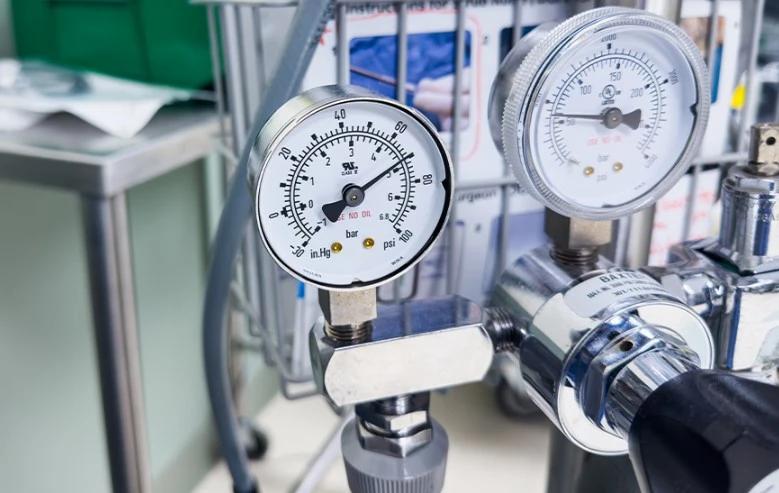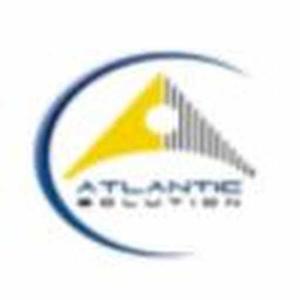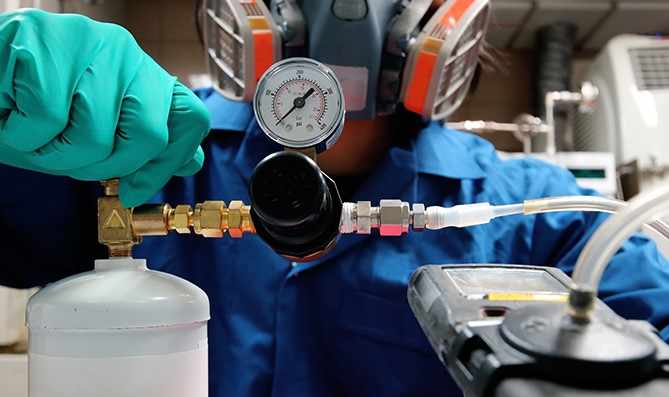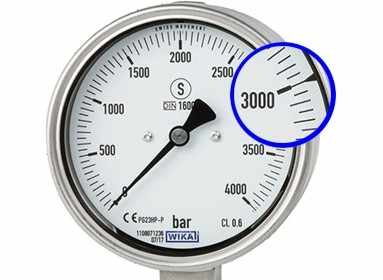
When managing equipment that operates under high pressure, I know how easy it is to overlook routine maintenance. However, one crucial aspect I can’t afford to skip is High Pressure Calibration. It ensures that all the instruments and machinery are functioning at their optimal performance. Skipping this essential calibration can lead to a range of issues, from inaccurate readings to complete equipment failure. For industries that rely on precise measurements, such as manufacturing or energy, ignoring regular pressure calibration can cause serious complications.
In this article, I’ll share what happens when you skip high pressure calibration and why it's vital to maintain your equipment regularly.
1. Inaccurate Measurements
One of the first problems I’d face if I skip High Pressure Calibration is inaccurate measurements. Over time, pressure gauges and other equipment can drift out of their original settings, leading to readings that are no longer reliable. This might not seem like a big issue at first, but when accurate measurements are essential to safety and performance, even small deviations can lead to larger problems.
Risk of overpressure: Equipment might exceed safe pressure levels, causing potential hazards.
Substandard product quality: In industries where precision matters, inaccurate readings can result in faulty products.
2. Increased Safety Risks
The safety of my equipment and the people operating it is always a priority. When High Pressure Calibration is neglected, safety risks increase significantly. Equipment that isn’t properly calibrated might malfunction, leading to dangerous situations like system failures or leaks.
Bursting hazards: Over-pressured systems can cause equipment to rupture or burst, posing a severe safety risk.
Leaks and spills: Incorrect pressure readings could lead to leaks, which are both dangerous and expensive to repair.
3. Reduced Equipment Lifespan
Regular calibration ensures that my equipment operates at peak efficiency. When I neglect pressure calibration, the wear and tear on the system increases. This results in the equipment breaking down faster than it should, shortening its overall lifespan. Not only does this lead to increased costs for repairs and replacements, but it also means more downtime, affecting overall productivity.
More frequent breakdowns: Skipping calibration increases the likelihood of mechanical failure.
Higher maintenance costs: Repairing equipment damaged by improper pressure can be costly.
4. Non-Compliance with Industry Standards
For businesses, maintaining compliance with industry standards is non-negotiable. Without regular High Pressure Calibration, I might find myself out of compliance with regulatory requirements. This can result in penalties or even shutdowns, depending on the severity of the situation.
Regulatory fines: Failure to comply with pressure calibration standards could lead to expensive fines.
Operational delays: Inspections and certifications may be delayed if equipment isn’t calibrated, affecting project timelines.
5. Higher Operational Costs
Inaccurate pressure readings can lead to inefficiencies that drive up operational costs. Equipment running under incorrect pressure conditions may use more energy, operate less efficiently, or require more frequent repairs. By neglecting High Pressure Calibration, I could see my operating costs rise significantly without realizing it.
Increased energy consumption: Miscalibrated equipment often requires more power to function.
Higher repair and replacement expenses: Over time, equipment subjected to improper pressure wears down faster, increasing the need for costly fixes.
6. Poor Customer Satisfaction
If I skip regular pressure calibration, I risk delivering subpar products or services. For any business, customer satisfaction is critical, and inaccurate pressure readings can affect the quality of products. Whether it's a defect in materials or inconsistencies in production, poor calibration directly impacts the end result.
Product defects: Poor calibration leads to errors in production that result in low-quality goods.
Missed deadlines: Downtime caused by faulty equipment can delay production schedules and lead to missed client deadlines.
Final Thoughts
Skipping High Pressure Calibration may seem like a way to save time or money in the short term, but the long-term consequences are far worse. From safety risks to higher operational costs, the importance of regular calibration cannot be overstated. By ensuring my equipment is properly calibrated, I can maintain safety, efficiency, and compliance—all of which are vital to the success of any business.






.jpg)
.jpg)
Write a comment ...